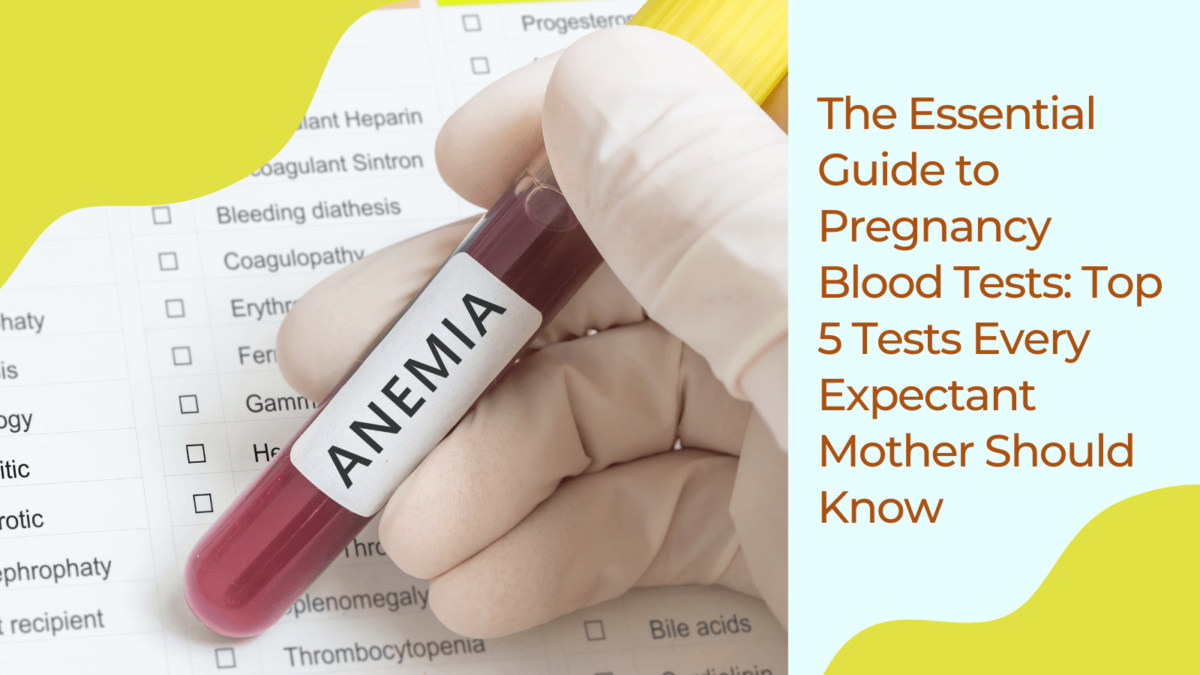Essential Blood Tests During Pregnancy: What Every Expectant Mother Should Know
Pregnancy is a time of significant physical change, and careful monitoring of both maternal and fetal health is essential for a safe outcome. Blood tests are a core part of routine antenatal care, helping clinicians identify potential risks early and take timely action when needed.
In this guide, we outline the most important blood tests carried out during pregnancy, explain what each test checks for, and why they matter for the health of both mother and baby.
Understanding your blood results allows you to take an active role in your care. Early detection of health concerns supports better decision-making, reduces complications, and contributes to a healthier pregnancy overall.
- Blood Type and Rh Factor Testing
Blood type and Rh factor testing is usually one of the first investigations performed in early pregnancy. This test identifies the mother’s blood group (A, B, AB, or O) and whether she is Rh-positive or Rh-negative.
Rh status is especially important. If a mother is Rh-negative and the baby is Rh-positive, there is a risk of Rh incompatibility. Without appropriate management, this can lead to complications such as haemolytic disease of the newborn in future pregnancies. Knowing the blood type also helps clinicians prepare for situations where a blood transfusion may be required during delivery.
2. Complete Blood Count (CBC)
A Complete Blood Count measures red blood cells, white blood cells, and platelets. During pregnancy, blood volume increases to support the developing baby, which can sometimes mask or worsen conditions such as anaemia.
A CBC helps identify iron-deficiency anaemia, infections, and clotting abnormalities. Detecting these early allows treatment to begin promptly, supporting maternal energy levels and ensuring adequate oxygen delivery to the baby.
3. Blood Glucose Testing
Blood glucose testing screens for gestational diabetes mellitus (GDM), a condition that develops when the body cannot produce enough insulin to meet pregnancy demands.
If untreated, gestational diabetes increases the risk of complications including high birth weight, pre-eclampsia, and delivery difficulties. Screening is usually done using the Glucose Challenge Test (GCT) or the Glucose Tolerance Test (GTT), typically between 24 and 28 weeks of pregnancy.
4. Infectious Disease Screening (Hepatitis B, HIV, and Syphilis)
Hepatitis B screening identifies mothers carrying the virus, which can be passed to the baby during childbirth. Early detection allows preventive treatment for the newborn, significantly reducing transmission risk.
Syphilis testing is vital, as untreated infection can lead to miscarriage, stillbirth, or serious congenital complications.
HIV testing is recommended for all pregnancies. When detected early, effective treatment can reduce the risk of mother-to-baby transmission to extremely low levels.
5. Rubella Immunity Testing
Rubella (German measles) can cause severe birth defects if contracted during pregnancy. This blood test checks whether the mother has immunity through prior vaccination or infection.
If a pregnant woman is not immune, additional precautions can be taken to reduce exposure. Contracting rubella during pregnancy can lead to miscarriage, stillbirth, or congenital rubella syndrome, which may cause hearing loss, heart defects, and developmental delays.
In addition to routine blood tests, some women may require further investigations depending on their medical history, stage of pregnancy, or individual risk factors.
- Group B Streptococcus (GBS) Testing:
Usually performed between 35 and 37 weeks. If positive, antibiotics during labour reduce the risk of infection in the newborn. - Non-Invasive Prenatal Testing (NIPT):
A blood test analysing fetal DNA in the mother’s blood to assess the risk of chromosomal conditions such as Down syndrome. - Neonatal (Newborn) Screening:
Performed after birth to identify genetic, metabolic, or hormonal conditions that may not be immediately visible. - Cord Blood Collection
Cord blood is collected from the umbilical cord and placenta after birth. It is rich in stem cells that can develop into different blood cells and are used to treat conditions such as leukaemia, lymphoma, sickle cell disease, and certain genetic disorders.
The collection process is safe, painless, and does not interfere with delivery. Stored cord blood can be used in future medical treatments and does not require a perfect donor match, making it a valuable medical resource.
As part of routine prenatal care, blood tests help ensure the safety and wellbeing of both mother and baby throughout pregnancy. The exact tests recommended may vary depending on individual health needs.
Always discuss your test results and any concerns with your healthcare provider to ensure care is tailored specifically to you.
Conclusion
Blood tests during pregnancy are a vital part of monitoring maternal and fetal health. They allow early detection of potential risks, support timely treatment, and contribute to better pregnancy outcomes.
By attending routine testing and staying informed, expectant mothers can take confident, proactive steps toward a healthy pregnancy and a safe start for their baby.
